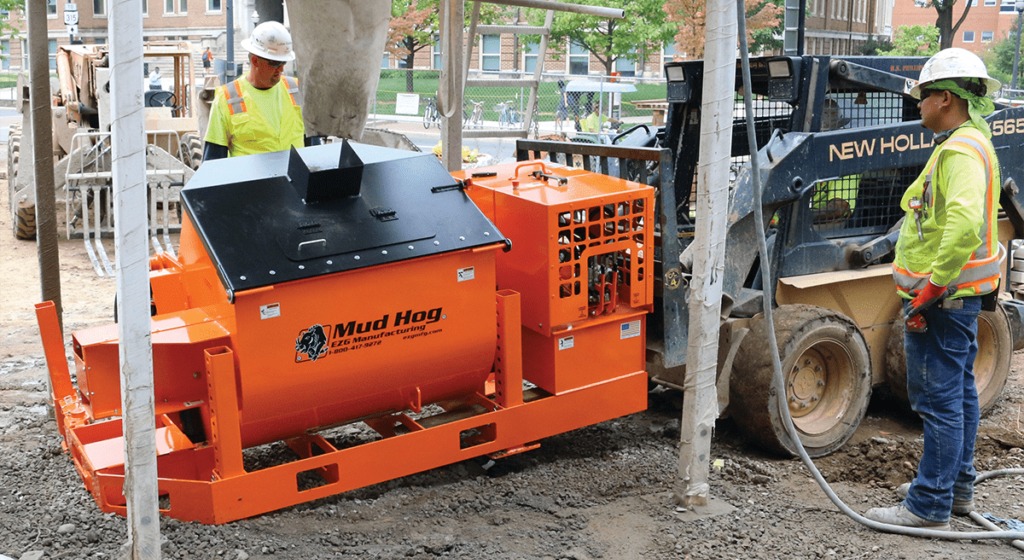Prolong the Life of Your Mixer with These Maintenance Tips
Words: Steve Wheeler
Words: Steve Wheeler
Photos: EZG Manufacturing
You’ve spent good money acquiring this equipment – don’t let downtime cost you because simple maintenance tasks were overlooked. We’ve outlined four key steps to maintain your mixers, avoid downtime and get the most out of your equipment.
1. Grease the seals and bearings
Whether you’ve just purchased a new mixer or maintaining your fleet, a little TLC can go a long way to ensure you get the most life out of your machines. Greasing the seals and bearings is one of the simplest yet most important things you can do daily to maintain your mixer. Greasing the bearings will help your mixer run smoothly while reducing the chance of components locking up and not turning over time. Keeping the seals greased will also help the paddle shaft turn correctly and prevent the seal from drying out.
Did you know EZG Manufacturing keeps about 1-1/2” of space between the seal and the bearing? This extra space helps protect your bearing from damage in the event the seal does leak and needs to be replaced.
2. Spray your equipment down at the end of the day
Cleaning your mixer thoroughly at the end of each day will save you time and will help prevent unexpected breakdowns on the job. Take 5 minutes to spray material off the paddles, shaft, and drum to keep all parts in good working condition. If material is left to harden and build up, your mixer’s efficiency will take a hit and put unnecessary strain on parts that may fail sooner than they should.
It's common for crews to take a hammer to the drum and paddles to knock off the last day’s material. EZG Manufacturing has built their parts with thicker steel to overcome the rough handling a mixer can take each day.
3. Check engine and fluids frequently
Check all fuel and hydraulic lines daily. Since most mixers are kept outside and are vulnerable to weather, this is key and shouldn’t be overlooked. Checking these daily will allow you to spot any tears, holes, or loose connections before a failure occurs.
It’s recommended to always consult the manufacturer’s instructions on when to change and what types of fluids can be used when performing these maintenance tasks.
4. Inspect your mixer at the beginning and end of each day
While it sounds time-consuming, if you or your crew spends only 5-10 minutes at the start and end of the day visually inspecting your equipment, you’ll save thousands of dollars over the life of the mixer and keep crews running - avoiding lost time while your machines are being repaired.

Get Help from the Pros
EZG Manufacturing knows a thing or two about mixers and how to keep them working as efficiently as the day they arrived on site. Visit our Maintenance Tips for more information on how to keep up on maintenance or connect with our Parts Department to order replacement parts.